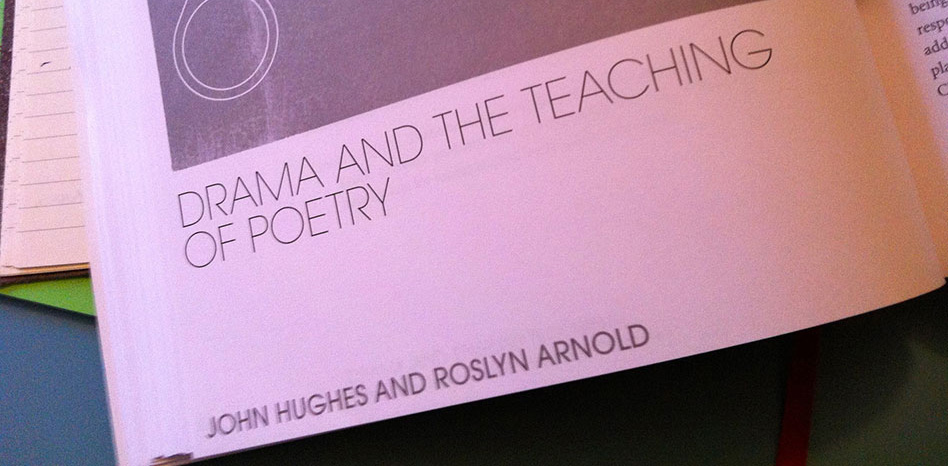Just recently I have read an article by John Hughes and Roslyn Arnold called Drama and the Teaching of Poetry. I really liked this article because it gave me some drama-based approaches to teaching poetry in the classroom. I believe that children need to experience poetry before they will care about how it is constructed – there needs to be a dynamic between thinking and feeling. Here are some of the suggestions I found interesting:
– Performing Poetry: students select a sonnet and create a performance. As a group they must examine the sonnet, understand the rhythm and rhymes, perhaps replace the Shakespearean text with contemporary language. Then students can perform the poem to the class as a group.
– Creating Poetry: I thought this activity would be great for students learning about the structure of different poems, rather than deconstructing a poem. Ask students to remember a moment or song from childhood that made them happy (stress happy, we don’t want a bring up anything inappropriate!). Students then form a small group to share stories, they then choose moments to illustrate with a frozen tableaux. Share with whole class. in their group, students write down two or three sentences or fragments of the story. These are then woven together to make a poem. This is when I would insert a structure for the children to work with – iambic pentameter for example. When sharing, the group can perform the tableaux while the poem is shared by a reader.
– Enactment of the Expert: I like the Mantle of the Expert and I think this is quite an interesting way to use it. Students in groups become University professors and are in a competition. The competition is to find out which University is the best – ask students which University they are from to get the ball rolling. The professors are given extracts from the poems and asked to predict what the poems are about. (It doesn’t really matter what they find as the prediction activity engages the students in the reading of the text). Reflection activity could include writing in role or writing to peer’s or a written ‘thesis’ report.
I believe this article is definitely worth a read as I have only touched on minor details here. Please let me know if you have any questions and thank you to John and Roslyn for their amazing research.
